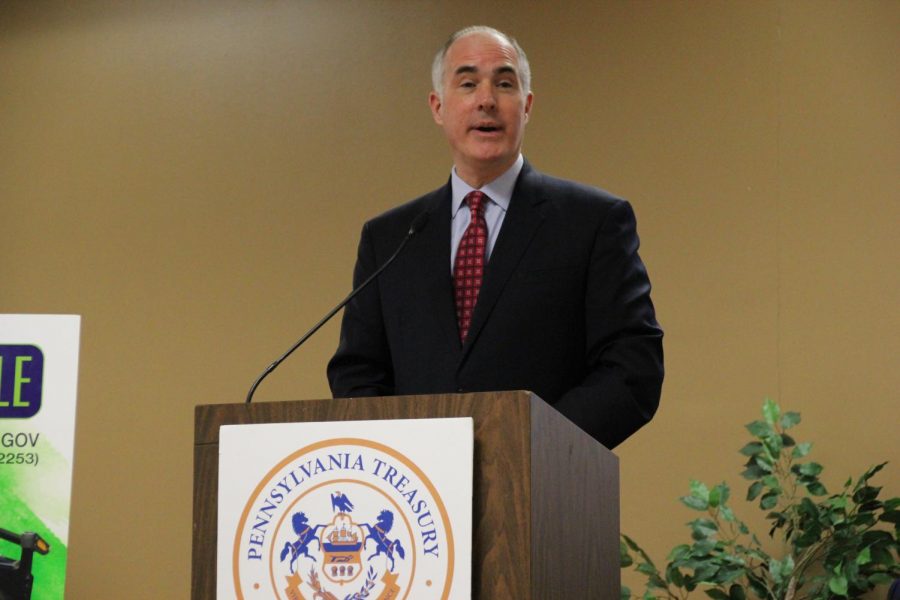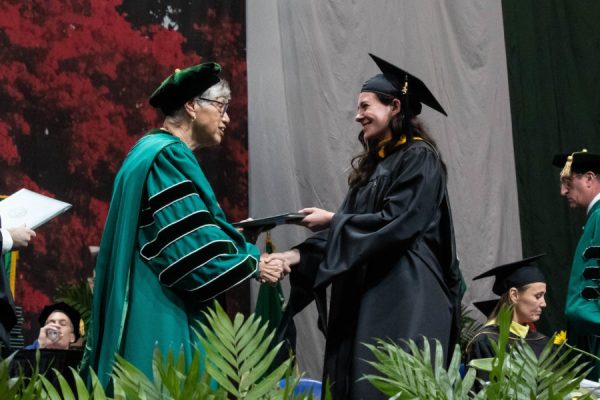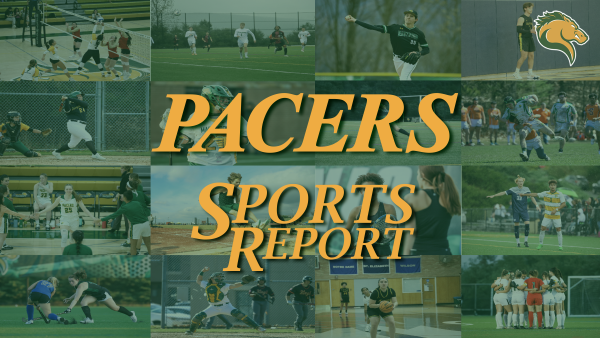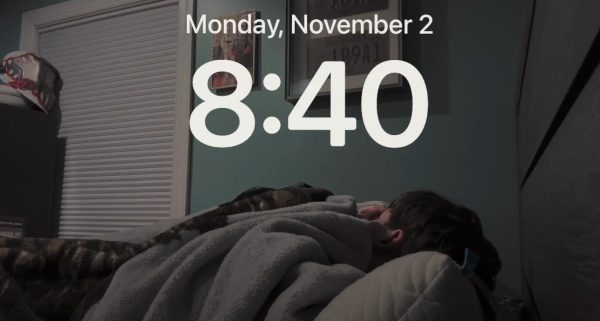Senator Robert Casey speaks at ABLE Act conference and resource fair
Photo credit/ Brooke Williams
Senator Robert Casey discusses the ABLE Act at Marywood.
April 23, 2018
U.S. Senator Robert Casey addressed a crowd at Marywood in celebration of one year since the launch of the Pennsylvania Achieving a Better Life Experience (ABLE) Act.
Under the ABLE Act, people with disabilities and their families can open tax-exempt savings accounts for up to $100,000 to fund expenses like medical care, housing and employment training without losing other benefits.
Mid Valley School District’s Pride Squad, a cheerleading team for children with special needs, opened the ABLE conference and resource fair with a performance before Casey discussed the road to passing ABLE and its current state today.
While the country has put in effort to allow families to save for higher education in a tax-advantaged way, there was no comparable tax provision for people with disabilities, Casey said.
Under ABLE, these individuals with disabilities have better financial opportunities.
“These Americans who have a disability can have the full measure of freedom when it comes to the freedom to work and to save, and all the benefits that come with that,” Casey said.
Thirty-nine out of 50 states have passed their own legislation to implement ABLE, but Casey said there is still work to be done. The goal now is to increase the number of ABLE accounts across the country, as well as the age restriction in place to open an account.
Currently, an individual must have developed their disability before the age of 26 to be eligible for ABLE. Casey wants to extend that age to 46 for people who develop disabilities later in life.
Pennsylvania Treasurer Joe Torsella also spoke at the conference, noting Pennsylvania ABLE to be the fastest growing program in the national ABLE consortium with more than $6.5 million saved by account holders so far.
“Before ABLE, we were sending the wrong message to people with disabilities in Pennsylvania and around the country,” Torsella said. “We were telling them effectively not to save for their own future because saving too much could end up costing them the benefits that they needed.”
Other speakers included CEO of the Center for Independent Living Tim Moran, a father of nine who became disabled after an accident at age 40.
Moran brought his youngest son Matthew, who was born with Down syndrome and a congenital heart defect. When Matthew was born, Moran and his wife questioned how to prepare for Matthew’s future. They discussed future financial support and who will take care of him after they die.
“Thankfully, due to Senator Casey’s efforts and Joe Torsella’s implementation, those issues have dissipated over the course of the last year,” Moran said.
Sara Wolff, a law clerk, motivational speaker and advocate for the legislation, shared her ABLE journey that began in 2006.
Wolff, who has Down syndrome, worked with Casey for years to get ABLE passed. In 2014, former President Barack Obama signed ABLE into law, and three years later, Wolff opened her own account when ABLE passed in Pennsylvania.
“My ABLE account allows me to save for my future and have confidence that I am able to support myself financially,” Wolff said. “I am grateful for Treasurer Torsella and others who are making PA ABLE accounts accessible and a successful financial tool for individuals with disabilities and their families.”
Regina Fidiam, a Northeastern Educational Intermediate Unit (NEIU) educator who works with the Students On-Campus Achieving Results (SOAR) program at Marywood, said it’s important for students and their parents to know what programs are available to help them.
The SOAR program teaches high school-age students with Autism spectrum disorder how to prepare for employment and live independently.
“Our whole goal here at Marywood, at least in my program, is to get them out to work,” Fidiam said. “In the past they could go to work, but they couldn’t save money and how is that fair? How is that okay?”
Brian Holmes attended the conference with his family to support the local rollout of the ABLE Act and his daughter Rosey who cheers on the Pride Squad.
“I know speaking on my daughter’s behalf, we want to make sure that as they grow older, they’re taken care of both financially and with support from the community, so we think it’s extremely important that the ABLE Act is in place to take care of all people with disabilities,” Holmes said.
Marywood President Sr. Mary Persico, IHM, Ed.D said supporting people with disabilities is in line with the university’s core values, especially respect and empowerment.
“We want to empower people to grow and flourish,” Persico said. “We also have the core value of respect, and unfortunately people with disabilities don’t always get the respect they deserve, and so it just demonstrates that we believe in those core values and we live them out.”
Justin Kucharski contributed to this article.
Contact the writer: [email protected]
Twitter: @BWilliamsTWW















